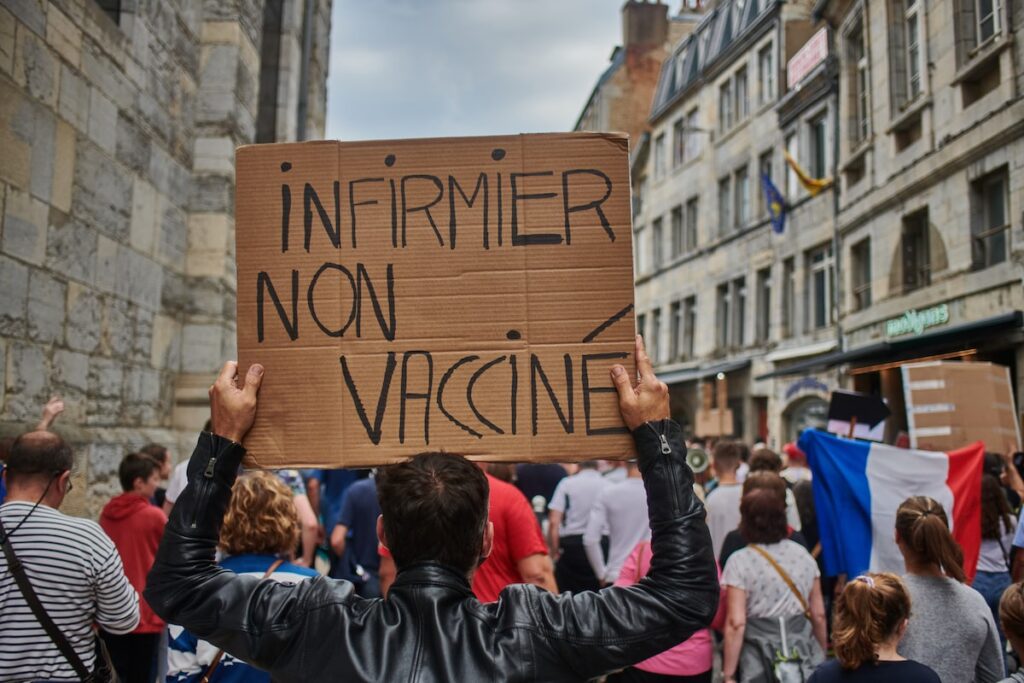Among the many problems originated by the Covid 19 pandemic, one of the most important is the resurgence of the anti-vaccine movement. Conspiracy theories, ridiculous arguments and unfounded accusations have given renewed fuel to one of the most anti-scientific and destructive trends we have ever seen.
The nefarious contemporary anti-vaccine movement originated at the behest of a paper published in 1998. Former physician (his license has since been revoked) Andrew Wakefield claimed that the measles, mumps and rubella vaccine cause autism. Although the paper was eventually refuted and retracted, the damage was done.
With the advent of Covid 19, “what was an anti-vaccine movement then morphed into a full-on anti-science movement,” as virologist Peter Hotez states in a recent interview with The New Yorker.
It is very worrying then to find strong parallels between the anti-vaccine movement and the anti-vaping movement. Why? Because in both cases they are tools that serve to save millions of lives.
Indeed, according to international organizations, vaccines save between two and three million lives every year.
By the same token, an article recently published in the journal Science states that “the most conservative estimates suggest that were vaping nicotine to replace most smoking over the next 10 years, 1.6 million premature deaths would be avoided and 20.8 million quality adjusted years of life would be saved in the United States alone. The greatest gains would be among younger cohorts.”
As we can see, the stakes are very high, and it would be a very serious mistake to let them be decided on fallacies, techno-panics or hysterical reactions.
The following three seem to be some of the most suggestive anti-vaccine and anti-vaping parallels:
1. Demonization of substances
One of the main anti-vaccine “arguments” is that vaccines contain harmful substances such as formaldehyde or aluminum.
While it is true that there are traces of them in vaccines, the concentration is negligible and incapable of causing any harm.
Interestingly, vaping has also been accused of containing formaldehyde. However, in 2018 a study by the Centers for Disease Control and Prevention (CDC, United States) indicated that the levels of formaldehyde found in e-cig vapor are insignificant to our health.
Nevertheless, the great bête noire is nicotine.
The myths and falsehoods about this substance are at the basis of the anti-vaping campaigns. Public Health England explains this situation very well:
“Four out of 10 smokers and ex-smokers wrongly think nicotine causes most of the smoking-related cancers, when evidence shows nicotine actually carries minimal risk of harm to health. Although nicotine is the reason people become addicted to smoking, it is the thousands of other chemicals contained in cigarette smoke that cause almost all of the harm.”
At the same time, there are a number of contemporary scientific studies regarding the potential benefits of nicotine. For example, Dr. Paul Newhouse of Vanderbilt University Medical Center (United States) claims that “cognitive enhancement is one of the best established therapeutic effects of nicotinic stimulation.”
2. Outlandish mortality risks
Around the Covid 19 vaccines, rumors circulated on social networks about the possible “high mortality” of the vaccines. According to conspiracy theorists, while the coronavirus causes very few deaths, the lethality associated with the vaccines would be much higher.
In a very similar manner, vape critics used the vaporizer explosion episodes to generate a psychosis around absolutely isolated events.
However, sources such as The Vaping Today give a much more rational and adequate explanation:
“It’s not that vaporizers explode a lot, it’s that when they do the story goes on seemingly endlessly… There is no evidence that real mods or vape pens explode any more than any other battery-powered consumer electronic product. But vaping is not very popular with the non-smoking and non-vaping public, making it an easy target for news stories and social media spreads.”
3. “Exotic” diseases
Also with regard to Covid 19 vaccines, a dangerous mythology arose about potential harms or diseases that would be generated by the vaccines.
Thus, anti-vaxxers did not even blush while suggesting that the Pfizer and Moderna vaccines would be responsible for “altering people’s DNA” because they are based on messenger RNA technology.
At the same time, alarms were raised over the alleged fact that children’s immune systems would not tolerate so many vaccines.
In the case of vaping there is also an exotic (and non-existent) disease. It is the E-cigarette or vaping use-associated lung injury, or EVALI.
After a fierce campaign of misinformation and fear, several states in the United States decided to ban most flavored e-cigarettes. On top of that, the FDA increased regulatory scrutiny of vaporizers and other e-cigarettes.
However, as Jeff Stier explains, “it turned out that none of these nicotine e-cigarettes were ever responsible for the lung disease that bears their name. It took until late December for the Centers for Disease Control to (partly) acknowledgethat the lung injuries were caused not by vaping liquid nicotine e-cigarettes such as Juul, but by the use of THC oil contaminated with vitamin E acetate.”
Science and innovation vs. obscurantism
It would be a moral and health tragedy if irrational and anti-scientific preaching were to prevail, both in the case of vaccines and vaping.
In the same way that innovations such as messenger RNA empowers medicine, it would be very beneficial to abandon the prejudices and fallacies surrounding vaping.
It is time to become aware that thanks to this type of innovative products we are on the verge of eliminating smoking and saving millions of lives.
* Federico N. Fernández is Executive Director at Somos Innovación (a Latin American pro-innovation alliance) and CEO at We Are Innovation (Somos Innovación’s sister organization for Europe). Federico is Founder and President of Fundación Internacional Bases (Rosario, Argentina) and also the Chairman of the Organizing Committee of the International Conference “The Austrian School of Economics in the 21st Century,” which takes place in Europe and LatAm alternatively.
Source: Medium




